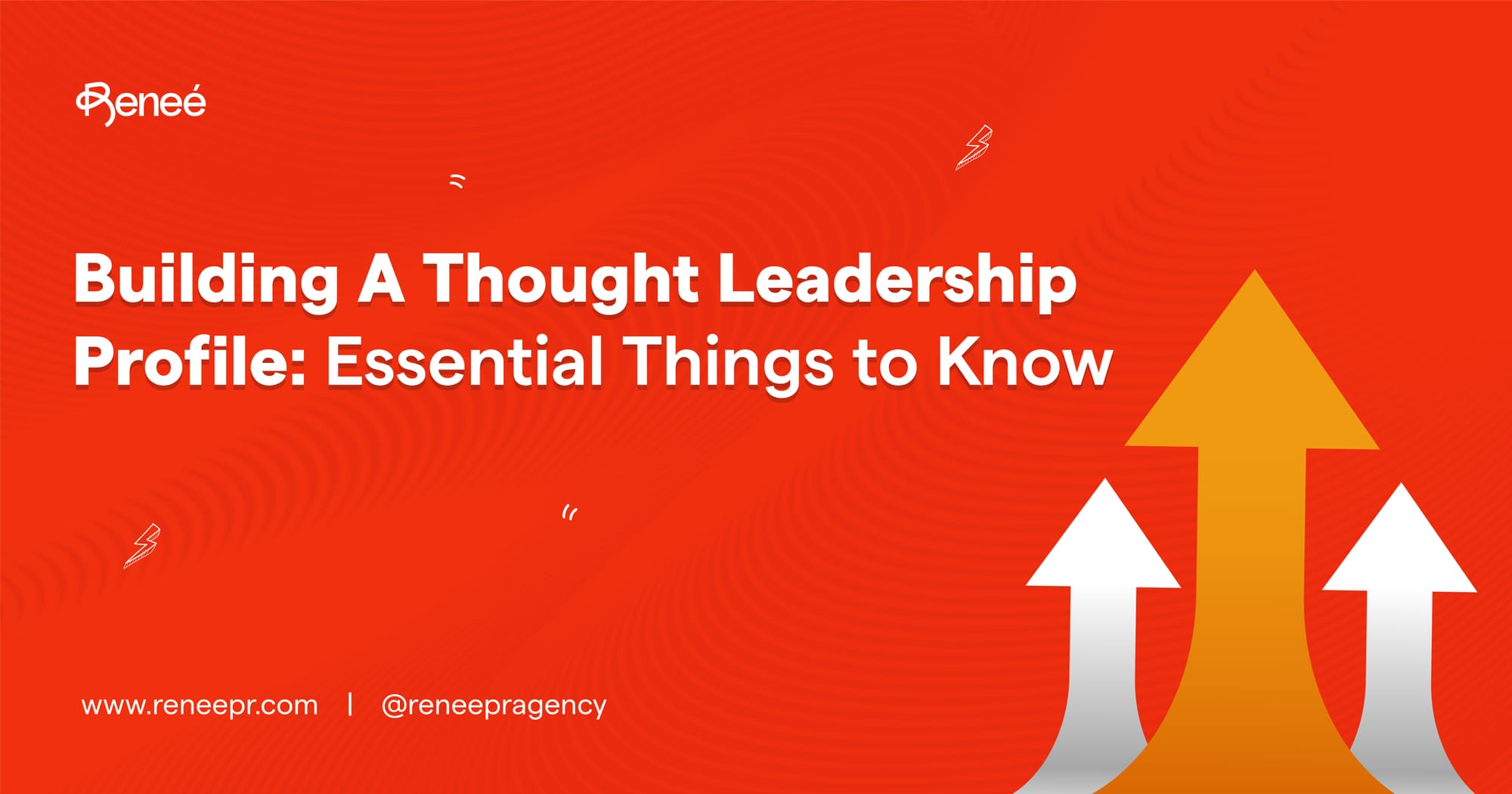Building a Thought Leadership Profile: Essential things to know

These days where social media influencers are often mistaken for thought leaders, it’s crucial to understand the distinction. While influencers may have a large following due to their content and opinions, they often lack a specific niche, offering thoughts on a wide range of topics. This lack of focus does not equate to thought leadership.
True thought leadership goes beyond internet popularity and seeks to establish oneself as a trusted resource capable of shaping meaningful conversations and knowledge that benefit their business, industry, and audience. Many startup founders and business owners aspire to be recognised as leading voices in their industries, creating a niche and a brand that resonates with others.
Understanding Thought Leadership
Thought leadership is essentially about sharing authentic information, insights, and experiences with others, aiming to enrich them with knowledge. It involves providing valuable information, gaining knowledge, and taking firm stances on issues, even if they might spark debates. Thought leaders are known to stand by their beliefs, regardless of their potential controversy.
By sharing thought-provoking and well-researched content, thought leaders establish themselves as an authority in their field, influencing others within a specific niche. This not only drives change but also contributes to the education and growth of others.
Attributes of Thought Leaders
A genuine thought leader possesses several key attributes. Here are our top picks:
Niche Mastery and Authority
A thought leader is an individual who has carved a niche and assumed authority in a particular field through the consistent sharing of knowledge and expertise. This person earns loyalty from their audience, becoming a trusted source of guidance and advice.
Authenticity
Being a thought leader requires authenticity and empowerment, inspiring others to think differently. Thought leaders are genuine in their beliefs and opinions, avoiding pandering or seeking validation from others.
Open Minded
An often overlooked attribute of thought leadership is open-mindedness. Despite being an expert in a field, thought leaders remain receptive to new ideas and approaches.
For example, this thought leadership article written by Uzoma Dozie, the CEO and Founder of Sparkle discusses the limitations of fintechs and the importance of banking fundamentals.
Despite being a fintech founder, Dozie argues that while fintechs have made banking more accessible and user-friendly, they often overlook the core principles of banking, such as creating value for customers and generating revenue.
Confidence
Thought leaders are confident and persuasive in their convictions. They offer unique viewpoints that provoke creative expression and often challenge the status quo. They encourage people to reconsider their thoughts and ideas.
The Impact of Thought Leadership
The influence of thought leadership is profound and extensive, with far-reaching impacts on individuals, businesses and industries. At its core, thought leadership elevates personal brands, turning experts into sought-after authorities.
For businesses, it becomes a strategic lever, driving customer trust, and attracting new users. On a broader scale, thought leaders often become architects of change, influencing trends, behaviours, and even regulatory decisions.
Personal Impact
A personal benefit of being a thought leader is the trust and credibility you gain from your audience and the general public. Also, regularly sharing your thoughts can lead to opportunities for collaboration and growth within your networks, communities and with others who share your interests.
Peace Itimi exemplifies thought leadership through her YouTube channel, where she shares deep insights into marketing—from customer acquisition to growth strategies and metrics.
Her expertise, honed through experience, resonates with both seasoned marketing managers and aspiring professionals, making her channel an invaluable resource in the field.
Business Impact
Thought leadership can profoundly impact business goals. When a founder, business executive or even an employee consistently shares unique insights, they can build credibility in their field, differentiate their brand and foster trust. This trust translates into customer loyalty and word-of-mouth growth, significantly reducing acquisition costs.
Victor Fatanmi exemplifies this impact. As co-founder and CEO of Fullgap, he consistently shares actionable freelancing tips and strategies across various platforms, establishing himself as a trusted authority and go-to resource in the gig economy.
His thought leadership profile not only boosts his credibility but also organically attracts users to Fullgap, a business management tool tailored for freelancers.
Industry Impact
Thought leaders serve as role models. By challenging the status quo, thought leaders can inspire new ideas, encourage others to think differently and develop innovative solutions to problems, leading to improvements that benefit all involved.
In a thought-provoking social media post, Victor Asemota—an experienced entrepreneur and technology expert—shared the origin story of MTN (a major telecommunications company) as valuable advice for founders.
His message emphasized the importance of focusing on creating meaningful work before attempting to scale a venture.
In essence, thought leadership is a catalyst that allows individuals to share their knowledge and ideas, establish their reputation in their field, and inspire positive changes. It’s not just about knowledge and intelligence—it’s about using your skills and expertise to make a meaningful difference in the world.

